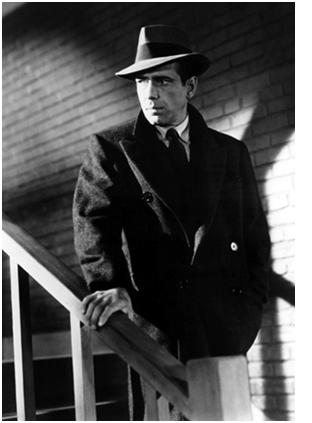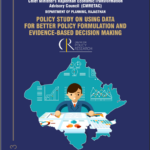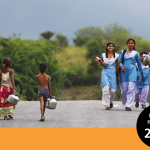
Pot luck from the field
5 September 2011
At the outset, please allow me to be honest: I ran out of topics to write on. So while scanning for inspiration (and low hanging fruit), I took the most common recourse by looking at previous blog entries. And the good thing is that I didn’t have to look very far! In a previous post, Yamini had written on some of the team’s experiences in the field. Here, in what was intended to be a shorter entry, but sadly failed in its ill-conceived attempt at brevity, I’ve written about some incidents that befell me in the field, some related to the survey, some not.
Planning a survey, as my colleagues will tell you, is a lot of work. I have mercifully been spared till now but these days, I sense, are about to come to an end. While the pilot survey in Jalpaigudi (in December 2010) may have underlined the importance of knowing the academic year (it coincided with examinations in primary schools), Nalanda and Purnea showed that the academic year can vary by district as well. Furthermore, some schools in Kangra follow a separate academic year from other schools within the same district! So, finding a two week stretch during which all schools in a district remain open is not an easy task by any stretch of the imagination. Apart from academic years and national and state government holidays, Jaipur illustrated that we had to take the marriage season into account as well! The buck doesn’t stop here – there are a number of random shocks, for instance, who would have thought that the Rajasthan government would declare a two day holiday to mourn the death of the Chief Minister of Arunachal Pradesh (no disrespect intended) or that Telengana protests would break out in Medak district of Andhra Pradesh one day after the start of the survey? But I dare say that nowhere was it so unpredictable than Jalpaiguri district of Pashchim Banga, as I found out to my frustration during the annual survey in August 2011.
By virtue of the fact that no one in the team (apart from yours truly) understands Bangla, I have had the privilege of overseeing the PAISA survey. The survey was to start on August 8, a Monday . But little did we know that Mamata di would declare a holiday on the occasion of Rabindranath Tagore’s death anniversary and earmark the next two days for cultural activities. The original intimation was that schools would be working on August 9, but at the last minute we received information that would be a holiday as well! The confusion doesn’t stop there though – it appears that some headmasters decided that they were the bosses of their own schools and decided that Tuesday would be a working day, come rain or shine, thus we ended up with a mix of open and shut schools and no idea which was which. To add to our woes, another bandh was declared on Friday and roads were blocked in some regions as a part of protests by tribals. So, to summarize the events of two random weeks in Jalpaiguri:
|
Date |
Event |
|
August 02 |
Bandh |
|
August 03 |
Working |
|
August 04 |
Working |
|
August 05 |
Working |
|
August 06 |
Saturday |
|
August 07 |
Sunday |
|
August 08 |
Holiday |
|
August 09 |
Cultural celebrations |
|
August 10 |
Cultural celebrations |
|
August 11 |
Working |
|
August 12 |
Bandh |
|
August 13 |
Saturday (and Raksha Bandhan[1]) |
|
August 14 |
Sunday |
|
August 15 |
Independence Day |
|
August 16 onwards |
Working (hopefully!) |
Interestingly, all these bandhs seem to be called on Mondays and Fridays. It almost makes me want to shift base to (not) work in North Pashchim Banga!
 Second, Sam Spade (or Philip Marlowe if you prefer) seems to have competition as murder seems to be stalking me ever since my return from Himachal Pradesh. And nowhere was it so apparent than the five days I spent in Bihar. Yamini mentioned that we could not get financial information in some schools as some headmasters had been booked under a murder charge and consequently school accounts had been frozen; the connection however doesn’t end here. We had hired a car for a couple of days to help us monitor the progress of the survey and to recheck schools that have already been surveyed. This car came with a slightly-built, soft-spoken but unnaturally well-dressed driver sporting a pair of Ray-Ban sunglasses and a nostrum in the form of a magnetic pendant. After doing a round of about four schools, we stopped for some litti chokha by the road. Drifting into small talk, I found after obtaining his drivers’ license in Delhi in the early 90s, he had spent a few years driving a bus. Now, anyone familiar with Delhi will tell you that the 90s were the halcyon days of the aptly coloured Red Line buses which had pedestrians scurrying for cover even while walking on the pavement[2]. My interest was thus immediately piqued. I was rewarded for treating him to breakfast when he told me that he had indeed driven a red line for the better part of the 90s. And as I had suspected his career in mass transportation had come to a premature halt because of a misguided moment of road rage that had resulted in the death of a traffic policeman. After spending six months in prison and paying a fine of Rs. 20,000, our subject returned to Purnea where he has remained ever since.
Second, Sam Spade (or Philip Marlowe if you prefer) seems to have competition as murder seems to be stalking me ever since my return from Himachal Pradesh. And nowhere was it so apparent than the five days I spent in Bihar. Yamini mentioned that we could not get financial information in some schools as some headmasters had been booked under a murder charge and consequently school accounts had been frozen; the connection however doesn’t end here. We had hired a car for a couple of days to help us monitor the progress of the survey and to recheck schools that have already been surveyed. This car came with a slightly-built, soft-spoken but unnaturally well-dressed driver sporting a pair of Ray-Ban sunglasses and a nostrum in the form of a magnetic pendant. After doing a round of about four schools, we stopped for some litti chokha by the road. Drifting into small talk, I found after obtaining his drivers’ license in Delhi in the early 90s, he had spent a few years driving a bus. Now, anyone familiar with Delhi will tell you that the 90s were the halcyon days of the aptly coloured Red Line buses which had pedestrians scurrying for cover even while walking on the pavement[2]. My interest was thus immediately piqued. I was rewarded for treating him to breakfast when he told me that he had indeed driven a red line for the better part of the 90s. And as I had suspected his career in mass transportation had come to a premature halt because of a misguided moment of road rage that had resulted in the death of a traffic policeman. After spending six months in prison and paying a fine of Rs. 20,000, our subject returned to Purnea where he has remained ever since.
While our driver stayed on in Purnea, my tryst with murder was to have another twist: my next trip was to Jalpaiguri, where as soon as I landed I was greeted with the news that the master trainer training was behind schedule as a bandh had been declared the previous day and the transport system paralysed. Why? It appeared that a prominent trader had been murdered a couple of days ago and there were mass protests across Siliguri. Mercifully (and strangely), I have not had a brush with killers since I have returned to Delhi. Or so I think.
Now about some stray incidents that came to light during the survey and did not find a place in the previous blog:
- Community contribution in schools: The RTE has been particularly insistent that the local community gets involved in school planning and administration to encourage greater accountability and responsiveness to local needs. So while most schools do have School Management Committees (SMCs) which include some local members to manage the daily activities of the school, the response from the rest of the community has not been forthcoming(except perhaps for distributing sweets and prizes on the Independence Day and Republic Day). In fact as one headmaster in Himachal Pradesh wryly remarked, in some cases the only “community contribution” has been the theft of toilet seats from the school! In case you thought it couldn’t get worse than this, please read on. During our survey in Jalpaiguri, I visited a school with a particularly dilapidated toilet with no seat and a crumbling wall that had been reclaimed by the local flora and fauna. On being asked as to why the toilet had been allowed to reach such a derelict state, the headmaster replied the proximate cause of the depreciation was that some villagers had needed bricks and decided the school toilet was a convenient source.
- Impact on headmasters: Surveyors in Jalpaigudi have a few interesting tales to recount, Since they have been instructed to refer to passbooks and cash books when filling any information related to school grants, they have often had headmasters scurrying for cover. A feature of schools in Pashchim Banga is that a SMC (called a Village Education Committee or VEC) often looks after the day-to-day affairs of more than one school. Consequently, surveyors often have to make extra trips to get information. In December, a surveyor complained that a particular headmaster had refused to give any financial information citing that the documents were with the headmaster of a neighbouring school. But by the time, the surveyor reached the other school, Headmaster A had warned Headmaster B, who simply disappeared from the scene, in such haste that even teachers in School B were nonplussed! interestingly School A turned up in our August sample again and this time the surveyor was warned! In other cases, headmasters of schools not in our sample actually took umbrage that their schools would not be surveyed so-much-so that volunteers actually went and filled a questionnaire just to pacify them!
This then is it as far as my field experiences are concerned. As of now we have a long stretch ahead analysing the data that is pouring in from all sides. Our District Reports on elementary education will be out in October. Watch this space!
[1] Though Bengalis traditionally celebrate Bhai Dooj (or Bhai Phota as we call it), that doesn’t stop us from taking a holiday on Rakhi.
[2] The buses then fell victim to the terror they unleashed, and in an effort to rid them of the tag of “Killer buses” were painted blue and rechristened Blue Line buses. (Of course there’s more to the story, but this is what I like to believe!) But a leopard can’t change its spots, and drivers of blue line buses continued to have a free rein of the road till recently when the Delhi Transport Corporation prohibited further operations.





